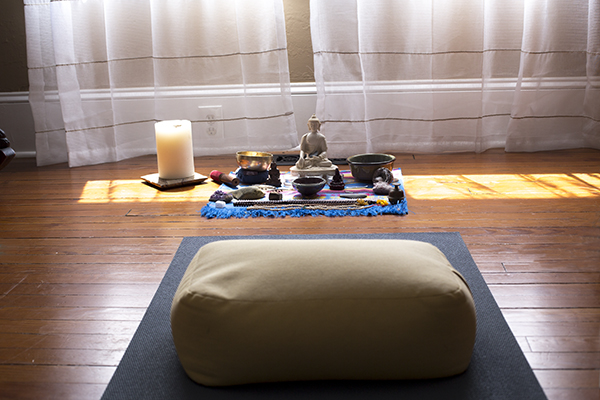Stress Reduction Techniques You Can Use Every Day
In today’s fast-paced world, stress often feels unavoidable, so we need easy stress reduction techniques to maintain balance and wellbeing. Deadlines, responsibilities, and constant connectivity leave many of us feeling overwhelmed. But the good news is that we improve our capacity to cope with several simple stress reduction techniques.
Simple, intentional daily habits—when practiced consistently—can significantly reduce stress and enhance your overall well-being. Below are 10 easy-to-implement, science-supported stress reduction techniques to help you feel calmer, clearer, and more in control every day.
1. Start Your Day with a Gentle Stretch
How you begin your morning sets the tone for the rest of your day. Instead of immediately checking your phone or jumping into tasks, dedicate 5-10 minutes to gentle stretching.
Why It Works:
- Releases overnight muscle tension
- Increases blood flow
- Signals your brain to start the day with care and intention
Simple stretches like neck rolls, side bends, gentle overhead side stretch, or yoga poses (such as Cat-Cow or Child’s Pose) can ease your body into the day and reduce stress levels from the get-go.

2. Hydrate First Thing in the Morning
Hydration plays a key role in physical and mental clarity. Dehydration can lead to fatigue, headaches, and irritability—all of which can heighten feelings of stress.
Quick Habit:
Drink a full glass of water as soon as you wake up. This helps flush out toxins. It rehydrates you after sleep. Your brain gets the hydration it needs to start the day strong.
3. Practice 2-Minute Mindful Breathing
Mindful breathing is one of the most effective and accessible stress relief tools. Just two minutes a day can make a noticeable difference.
How to Do It:
- Inhale slowly for 4 counts
- Hold for 4 counts
- Exhale gently for 6-8 counts
- Repeat for 2-3 minutes
This calms the nervous system and shifts your body from “fight or flight” to “rest and digest.”
4. Set Realistic, Achievable Daily Goals
A major contributor to daily stress is the feeling of overwhelm—too much to do, too little time. Combat this by setting 2-3 clear, realistic priorities each morning.
Benefits:
- Creates focus and clarity
- Reduces overwhelm
- Increases feelings of accomplishment
Break larger projects into bite-sized steps and celebrate small wins along the way.
5. Take Short Walks Throughout the Day
Movement is a proven stress reliever, and it doesn’t have to involve an intense workout. Short, intentional walks throughout your day can significantly lower stress levels.
Why Walks Help:
- Lower cortisol levels (stress hormone)
- Boost mood-enhancing endorphins
- Give mental clarity and a break from screen time
Aim for 5-15 minutes per walk, ideally outside in natural light.
6. Limit Caffeine Intake
While caffeine may seem like a lifesaver on busy days, too much can actually increase anxiety and restlessness. It can also interfere with sleep, worsening stress.
Small Adjustment:
Cut back on afternoon or evening caffeine. Replace your second or third cup with herbal teas like chamomile or peppermint, which have calming properties.
7. Keep a Daily Gratitude Journal
Gratitude journaling isn’t just a trend—it’s backed by science. Studies show that regularly writing down what you’re grateful for can improve mental well-being and reduce stress.
Simple Practice:
Each evening, jot down three things you’re thankful for. They can be as small as a good cup of coffee or as significant as supportive friends. This shifts your focus from worries to positives, promoting resilience.

8. Make Mealtimes Tech-Free
Mindlessly scrolling through emails or social media while eating can prevent you from truly unwinding. Designate mealtime as a tech-free zone.
Benefits:
- Encourages mindful eating
- Enhances digestion
- Provides mental space away from constant stimulation
Focus instead on savoring each bite and engaging with your senses.
9. Schedule Mini Breaks Every Hour
Rather than powering through tasks nonstop, schedule short breaks every hour or so. Research shows that brief pauses improve focus and reduce mental fatigue.
Ideas for Breaks:
- Stretch
- Breathe deeply
- Step outside
- Look away from screens for a few minutes
These small resets keep stress levels manageable throughout the day.
10. Create an Evening Wind-Down Routine
Your ability to handle stress is closely tied to how well you sleep. To improve sleep quality—and reduce stress—establish a calming evening ritual.
Suggestions:
- Dim lights an hour before bed
- Turn off electronic devices
- Engage in calming activities (stretching, reading, journaling)
- Sip herbal tea or try a guided meditation
Consistent wind-down routines train your body and mind to shift into rest mode, setting you up for restorative sleep and a calmer tomorrow.
Final Thoughts: Your Stress Reduction Techniques Toolkit
Reducing stress doesn’t require overhauling your life overnight. It’s about building small, sustainable stress reduction techniques habits that anchor you throughout the day.
By incorporating even a few of these 10 simple daily habits, you will notice changes. Try mindful breathing, gratitude journaling, short walks, or tech-free meals. You’ll gradually feel more balanced, present, and resilient in the face of life’s demands.
Remember: Little actions done consistently can have a profound impact on your overall well-being.